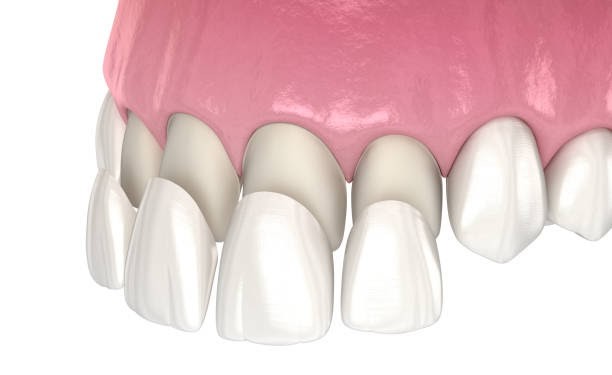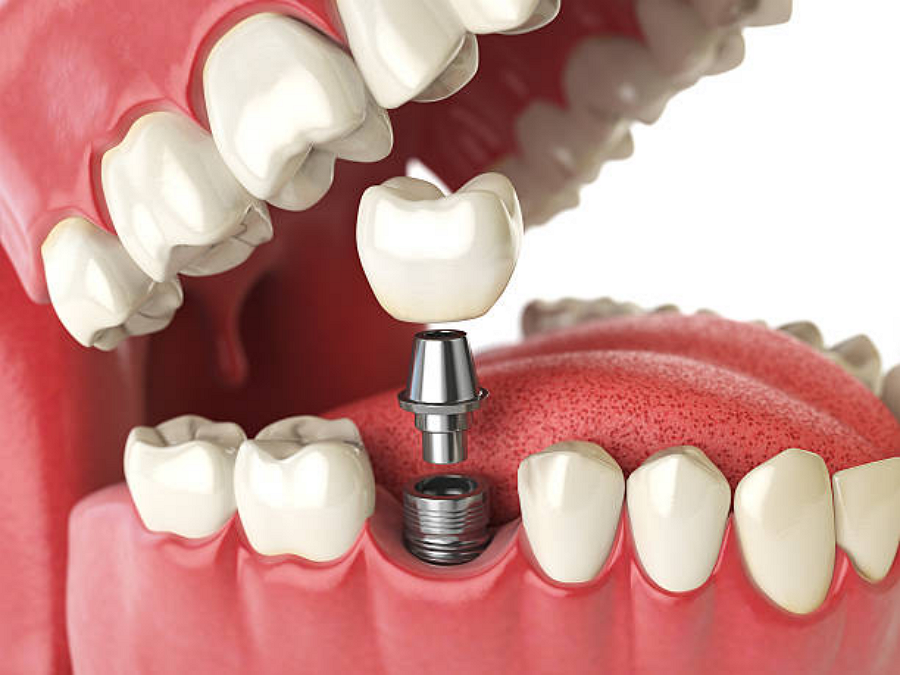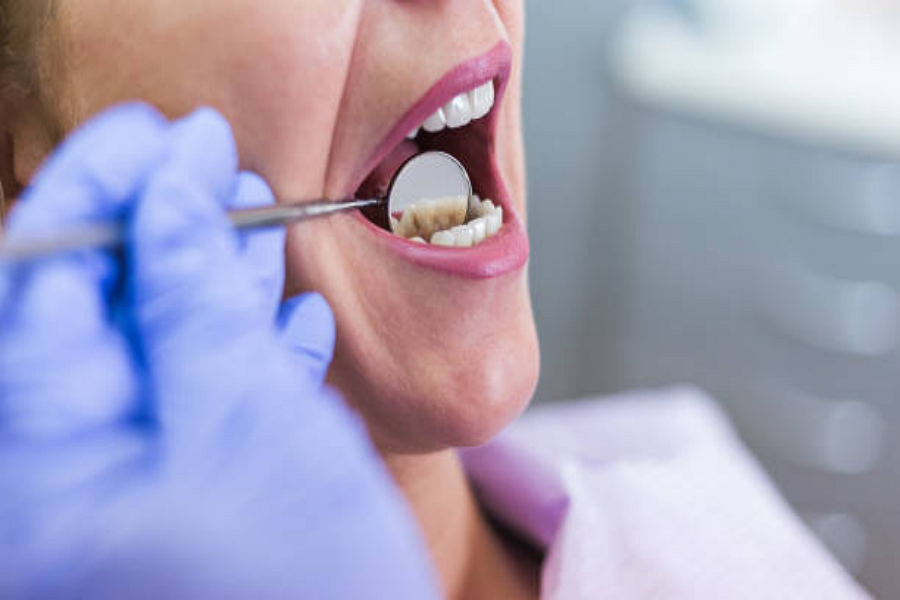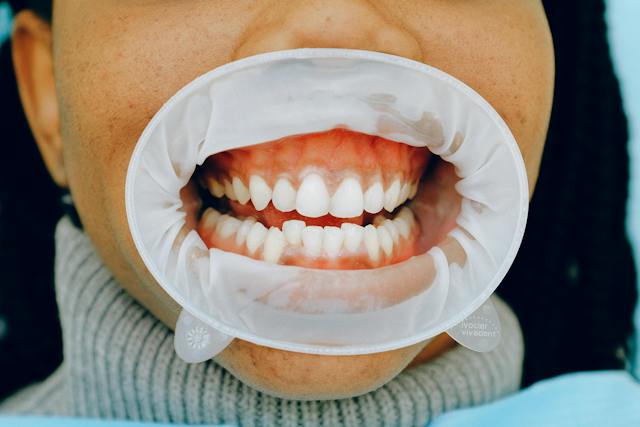Your smile is an important feature most people notice in you, so proper care should always be taken to enhance your smile. You may ask, what treatment is best to make your smile better? The answer is dental veneers. Dental veneers are excellent treatment options for addressing various physical and aesthetic dental issues.
What Are Dental Veneers?
Dental veneers are thin natural-like shells fitted to the front surface of teeth to improve their appearance. They are usually made from resin-composite or porcelain materials and are permanently attached to your teeth.
Veneers can be used to solve various cosmetic concerns such as chipped, discolored, broken, or smaller-than-average teeth. Some patients may only get a single veneer in cases of chipped or broken teeth, but most patients get within the range of six to eight veneers to create a balanced, symmetrical smile.
Types of Veneers
Two primary materials are used to create dental veneers – porcelain and resin-based material. Based on these materials, the types of veneers include:
Porcelain Veneers
Porcelain is a more common material used for veneers. They are tooth-colored, adaptable, completely customized to fit your natural tooth, and durable. Porcelain veneers are designed with ceramic materials and perfectly resist stains compared to composite veneers. They require a minimal procedure for successful shell placement, unlike full restorative treatments such as dental crowns.
Your dentist will remove some tooth enamel to attach the veneers before placing them. Porcelain veneers are similar in color to your natural teeth, and it’s possible to make them whiter to radiate the smile.
Composite Resin Veneers
Composite resin veneers are similar to porcelain veneers; however, they cost less and require less enamel extraction. In some cases, the dentist may not have reasons to remove any enamel before affixing the composite veneer.
Composite veneers are more conservative than porcelain veneers. They can be easily repaired when broken or damaged compared to porcelain that requires complete replacement.
Palatal Veneers
Palatal veneers, also called palatal onlays, are special onlays used to restore anterior teeth. Palatal damages to the anterior teeth could result from a deep bite, dental erosion, and bruxism.
Dental erosion is caused by severe vomiting and chronic acid reflux. Palatal onlays are the best solution to restore only the affected part, leaving the natural teeth.
Lumineers
Lumineers are ultra-thin (0.2mm) and glasslike brands of veneers. They replicate the color and shape of natural tooth enamel, even better than porcelain veneers. Lumineers are so tiny that tooth reduction or recontouring isn’t required.
They are durable and more convenient, but they are more prone to chipping than traditional veneers. This often results in a shorter lifespan.
How Are Dental Veneers Applied?
Getting your veneers from the lab after your dentist creates your mold takes between one and two weeks. Once you have the veneers, you can book a convenient time to have them fitted. At this appointment, your dentist examines the veneers’ shape, fit, and color to ensure they are perfect for you.
Then, your teeth are completely cleaned to make sure bacteria are not trapped under the veneer, which could result in decay. Next, a grinding tool is used to create a rough texture on each tooth where the veneer will be applied. It enables the veneer to stick correctly to the tooth.
After that, your dentist uses dental cement to attach the veneer to the tooth. Ultraviolet light is used to harden the cement immediately. Depending on the number of veneers applied, the veneering process doesn’t last longer than two hours.
What Are The Benefits Of Dental Veneers?
The significant benefit of using veneers is enhancing the appearance of your teeth, giving you a radiating and confident smile. Dental veneers are generally used to treat the following cosmetic issues:
- Chipped or broken teeth
- Serious discoloration that can’t be fixed with teeth whitening
- Smaller-than-average teeth
- Gaps in the teeth
- Unusually shaped or pointed teeth.
Veneers are durable and can last more than a decade, depending on the type of veneer selected. This means that dental veneers are a semi-permanent treatment that can provide you with a more confident smile.
Caring For Dental Veneers
Compared to other dental procedures, the recovery phase doesn’t take long. Once the veneers are applied and the used anesthetics wear off, you can chew and eat as you usually do. However, be conscious of not biting your cheeks or tongue while the anesthetic wears off.
In some cases, you may notice that the applied veneers feel a little rough. After a few days of teeth brushing and regular eating, the rough spots will wear down. You can see your dentist straighten them out if they don’t wear down.
There are certain precautions to take note of to ensure that you get the most extended use of dental veneers. They include:
- Ensure you don’t chew on complex objects such as pens, your fingernails, or ice.
- Don’t use your teeth to open packages.
- Wear a mouthguard if you’re a sportsperson.
- Ensure you don’t chew with your front teeth. Harder foods should be eaten with your back teeth.
Veneers are the best choice of treatment if you’re looking to change the shape of your teeth and improve the overall appearance of your smile. At ManiDental family Practice, we ensure that you get the best dental veneers in Elkin, NC, that perfectly fit your teeth and enhance the confidence in your smile. Schedule your first appointment to get you started.









